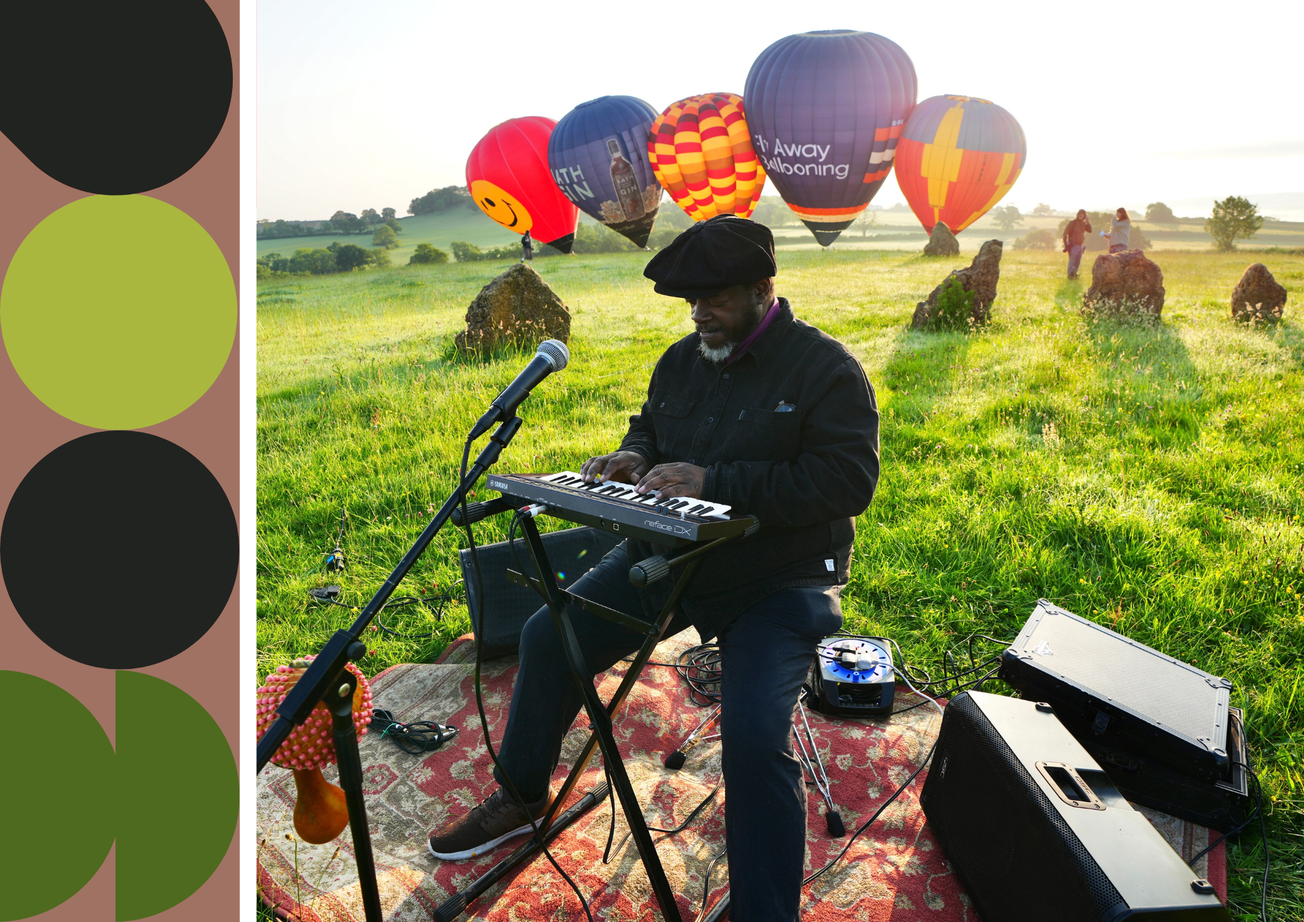By Bonnie Dowler, Second Year English and Philosophy
Influenced by the old school punk sound, Grade 2 have snatched the torch from the fury-fuelled predecessors to invigorate a new punk era with a kinetic, no-bulls**t allowed reiteration of traditional punk. With an upcoming European tour, not to mention two UK tours supporting The Interrupters and Dropkick Murphy’s under their belt, Sid (bass, vocals) and Jacob (drums) had plenty to chat to Epigram about.
Originating from the Isle of Wight, the three-piece explore themes of parochialism in a small town: degradation, isolation and lack of opportunity. Themes of parochialism pervade the band’s discography, from their first 2014 EP, aptly named ‘Broken Youth,’ to their latest release, the 2019 album Graveyard Island. ‘There was nothing to do in the sh***y little town,’ Jacob explains, ‘people just turned to drugs and alcohol at the age of 14; it’s sad to see the youth this way.’ Pursuing music has accomplished a hell of a lot for 3 down-on-their-luck lads from the Isle of Wight, Sid explains: ‘Writing was a way out of a small town… a way to break into a new opportunity, and actually doing that is a whole different hurdle - it’s a new chapter and a new life.’ The band draw inspiration from the environment they grew up encased in: ‘There’s a lot of places to draw an influence from when you feel like you’re heading towards a dead end.’
Grade 2 prove how the politically charged underbelly of old school punk is more than just relevant today: it is a necessary reaction to a political climate which hasn’t changed all that much in the 45 years since the birth of old school punk. Such influence can be heard in the band’s simultaneously punchy, provocative and eponymous song, ‘Graveyard Island,’ featuring the lyrics ‘No f*****g life/ no f*****g scene/This ain’t a place where you dare to dream:’ an accumulation of frustration and resentment towards the oppressive weight of an establishment you played no part in building. I’m certain a music journalist, circa 1977, probably hunched over a typewriter (or did they have computers then? Who knows?) produced a sentence not dissimilar to describe the burgeoning Sex Pistols.

Echoing frustrated lyrics of the old school punks, I was interested to get the band’s take on the so-called ‘punk future,’ and their potential spot at the vanguard. Sid responds: ‘The new wave that’s happening, it’s not called just punk now,’ leading the freshly conscripted post-punk army are bands like ‘Fontaines D.C., IDLES, Slaves and Amyl and the Snifferss.’ I let the band know how much I agree with them - lyrics from these bands can be as politically charged as those that emerged from the lips of Jello Biafra or Joe Strummer. Jacob expresses that ‘It’s cool to see them take it a little more mainstream… a lot of people are really getting into it right now and that’s gonna definitely open the doors for punk a bit more.’ Sid agrees with his bandmate: ‘That’s what’s gonna help more people backtrack and find older bands,’ (I’m waiting patiently for the day our generation can collectively sing ‘Nazi Punks F*** Off’ by Dead Kennedys) ‘And hopefully pave the way for new bands.’ As a lover of both old school punk and contemporary post-punk, I find the comparison interesting. It’s nothing but comforting to think the potentially flickering torch of punk is carried by bands like IDLES and Fontaines D.C, but on the flip side, disheartening to think traditional punk may be wilting away. That’s exactly why bands like Grade 2 play a vital role in keeping the old school scene alive and kicking. Not to mention- they’re f*****g good.
Having met in high school, jamming (pun intended) to The Jam covers in a music room as an escape from the schooling system, the band formed when Jacob was 14, and Sid and Jack 15. Now, I don’t know about you, but I was still a fan of 5 Seconds of Summer at age 14, so how on earth the trio were a burgeoning punk band is beyond me. On starting out in the industry young, Sid recalls: ‘I remember having to ask my head of year for time off my GCSEs to go play gigs in France and Normandy and she said no.’ Jacob interjects: ‘but of course we went anyway,’ in true punk spirit. ‘I remember once,’ Jacob continues, ‘We had to go straight from a GCSE exam to the airport, those were fun days.’ After expressing my awe to the band, Sid adds with humility that ‘they never set out to be more than’ an adolescent jam in a music practice room. Ironic, since the band wear 3 albums and 2 EP’s tightly under their belt.
In the spirit of beginnings, Sid and Jacob offer a few words of advice for fledgling punk rockers: ‘The best thing you can do when you are getting the early gigs, and when you show up for a show, is to be respectful to everyone and approachable.’ Sid continues, ‘We were naturally likable because we would just chat to everyone, and people would want to invite us back… that’s what people will remember you for.’ ‘The days of smashing up hotel rooms and chucking TVs out the window is over,’ Jacob adds with a laugh. You heard it here first, punk may not be dead but rock’n’roll certainly is. So, to recap kids, if you show up with a smile (and have some banging songs scrawled over a notebook) you may could be saved from the utter conundrum of exam season.
If you weren’t frantically scouring google for tickets to Grade 2’s upcoming tour (yes, they’re playing a Bristol date) you might be convinced by the repertoire of famous friends that have played a hand in creating and producing their discography. Recently, the band travelled to LA to record an album produced by Rancid’s Tim ‘Timebomb’ Armstrong. ‘Tim was by far our favourite to work with,’ Sid reveals, ‘We weren’t sure whether we were going to connect, because we were just a few kids from the Isle of Wight and he was older than us, but we understood each other, and creatively- he’s a genius.’ Other than gifting the band Rancid’s unmistakable sound (particularly noticeable on tracks ‘Murder Town’ and ‘JSA’) Armstrong introduced the band to a structural technique called ‘Cutting the fat.’ ‘We must have come in with 20 songs,’ Jacob recalls, ‘Most of them were 4, even 5 minutes long.’ Armstrong cut whole segments out of songs, Sid explains, ‘It made us think: everything we put into a song, why is it there? What purpose is it serving? If it’s not serving a purpose, then you don’t need it.’ In finalising, both bandmates note that it’s a simple technique they had not thought about before, and have added it the their hit-making holster for future tracks.
The art of sampling
Straight out of Bristol: The best acts to come from the west
Having delved into the nitty-gritty regarding lyricism and industry secrets, I endeavoured to ask a more serious question: if your music was a Tesco meal deal, what would it be? ‘It’s got to be a triple sandwich,’ Jacob laughs, ‘because they’re f*****g meaty, beefy and powerful. Or maybe a ham and egg club.’ ‘That’s Boots though,’ Sid retorts, as a Tesco employee myself I should know. After I joke about Sid promoting the company, he laughs, ‘Yeah! I hope I get shares in this.’ Jacob picks up the answer, ‘And an iced coffee- it’s fast, it gets you pumped, like our songs.’ After a heated debate over choice of snack (leave out the olives Sid, I stand my ground) the bandmates went for a Scotch egg, explaining, ‘It’s like our music: it smells like s***.’ Make of that what you will.
Having forever destined themselves the ‘band meal deal,’ I said my goodbyes to the duo. A word of advice before I leave you readers as well: if you manage to wander in to Grade 2’s Bristol show (The Louisiana, January 22nd) remember to bring nose plugs and warn your housemates you’ll come home reeking of Scotch egg.
Featured image: Bill Chatfield
Do you listen to Grade 2?








